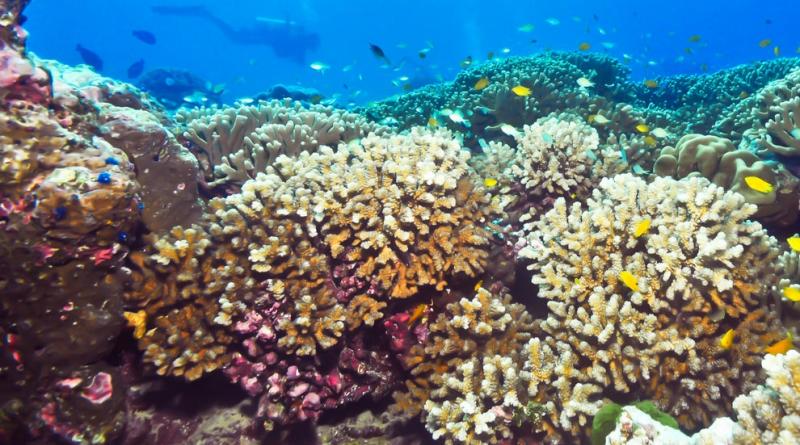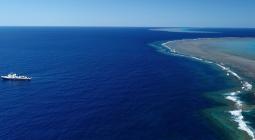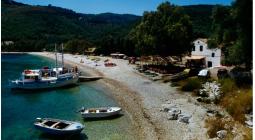Unique ‘climate refuge’ for coral discovered off coast of east Africa.

Jewel of biodiversity’ in natural oceanic basin formed during deglaciation of Kilimanjaro and Usambara mountains.
Scientists in east Africa have discovered a rare ocean refuge for coral where species are still thriving despite the accelerating climate crisis impacting other nearby reefs.
The stronghold, in the Indian Ocean off the coasts of Tanzania and Kenya, teems with life and is described as a “jewel of biodiversity” by researchers — but they warn that looming threats, including coastal development and destructive fishing practices, could cause irreparable harm.
The newly-discovered reef complex is located in a rare “ocean cool spot”, which the researchers believe is helping to protect the large populations of corals and marine mammals from the devastating impact of warming sea temperatures.
At first, the scientists, from the Wildlife Conservation Society (WCS), could not understand the reason for the huge abundance of flora and fauna the region attracts and is home to. This part of the Indian Ocean has the greatest concentration of dolphins in east Africa, and fish species previously thought to have become extinct have been found thriving in these cooler waters.
But they now believe the local geology, and in particular Mount Kilimanjaro - a vast dormant volcano 5,895 metres high - is responsible for creating the unique oceanic conditions.
The researchers described the coral sanctuary as being “intimately connected to the shape of eastern Africa”.
“Its deep coastal basin was formed thousands of years ago during deglaciation by runoff from Mt Kilimanjaro and the Usambara mountains. Those deep water channels now help provide thermal stability to marine ecosystems, shielding them from the worst of global warming in a pocket of cool and unstressful
They said that as sea temperatures in the Indian Ocean continue to experience more frequent and intense heat spells, the area could become an increasingly important haven for east Africa’s unique marine fauna, including threatened sharks, rays and even the very rare dugong.
“Coral sanctuaries are regions where reefs have the best chance to survive climate change. Scientists are scouring the world’s oceans to find and protect them,” said the study’s author and lead WCS coral scientist, Dr Tim McClanahan.
“This area off the coast of Tanzania and Kenya is a small but vibrant basin of marine biodiversity. Our study shows that while warming waters may devastate surrounding reefs, this area could become an incredibly important sanctuary where marine species big and small will flock to find refuge from climate change.
He added: “If well protected, this key transboundary marine ecosystem will remain a jewel of biodiversity for the entire east African coast.”
The research is published in Advances in Marine Biology.
16 December 2020
INDEPENDENT




